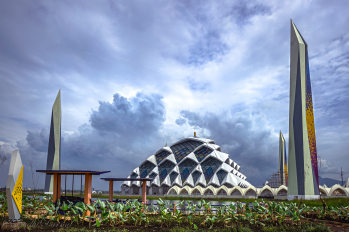
In a significant move towards institutionalizing the protection of minority rights in Pakistan, a subcommittee of the Senate Standing Committee on Human Rights last week approved a much-anticipated bill aimed at creating a minority rights body in accordance with international standards and regulations.
The subcommittee meeting that approved the National Commission for Minorities Bill, 2025, was chaired by the panel convener, Sen. Ali Zafar, at Parliament House on Thursday (April 17).
Pakistan’s constitution guarantees equal rights and protection for all citizens, including religious minorities, but disparities in practice persist. While the constitution protects freedom of religion and prohibits discrimination based on religion, minorities face persistent challenges in accessing public services and participating fully in social and economic life. There is also widespread persecution of minority groups.
The bill proposes that the commission will “assess and monitor [the] implementation of the constitutional guarantees and safeguard for promotion and protection of rights of minorities.” It will also review existing or proposed policies or programs to prevent discrimination and protect minorities and provide recommendations to the relevant departments.
The commission established by the prime minister would consist of 13 members, including two minority members from each province – a woman and a representative of the largest minority in that province. Additionally, the commission would include one minority member from Islamabad, the federal capital, and one grade-21 officer each from the Ministry of Human Rights, the Ministry of Law and Justice, the Ministry of Interfaith Harmony and the Interior Ministry.
“The chairperson and every other member…shall hold office for a term of three years,” the bill states. “There shall be a council to be established under this act. The council shall exercise all powers, perform all functions, do all acts and things which [are] assigned to it by the commission.”
This 18-member council would include three Hindu members – including two from the scheduled caste – three Christian members; three Sikh members; one member from the Baha’i community; two Muslim members; an ex-officio member from the Council of Islamic Ideology; a representative of the Evacuee Trust Property Board; one representative each from the Provincial Human Rights or Minorities Affairs Departments; and one minority member from Islamabad.
The commission would be empowered to request information or a report from government institutions if it is inquiring a violation of minority rights.
“Provided that if the information or report is not received within the time stipulated for the purpose, the Commission may proceed to inquire into the complaint on its own,” the bill states. “Without prejudice to anything contained in sub-section (1), if the commission considers it necessary, having regard to [the] nature of the complaint, it may initiate an inquiry without calling for any information or report.”
Members of the subcommittee reached consensus on two key points, according to a statement it issued: The nomination for the National Commission for Minorities would be shortlisted within 30 days, and the Constitution of Commission would be completed within 45 days; secondly, the minimum age for nominated members would be 35.
“Today is a historic day for minorities which will be remembered forever,” Sen. Zafar reportedly told the subcommittee.
Two minority senators – Khalil Tahir, a Christian, and Danesh Kumar, a Hindu, lauded the subcommittee’s unanimous approval of the bill. They said the government had taken all stakeholders into confidence over the formation of the commission.
The establishment of a National Commission for Minorities has long been a demand of civil society and Pakistan’s diverse minority communities. While earlier attempts have been made to create such bodies, many lacked legal backing or autonomy, limiting their effectiveness.
The proposed bill, if passed and implemented as envisioned, will not only provide legal cover but also empower the commission to act proactively on issues facing minority groups.
Pakistan, whose population is 96-percent Muslim, ranked eighth on Open Doors’ 2025 World Watch List of the most difficult places to be a Christian.





